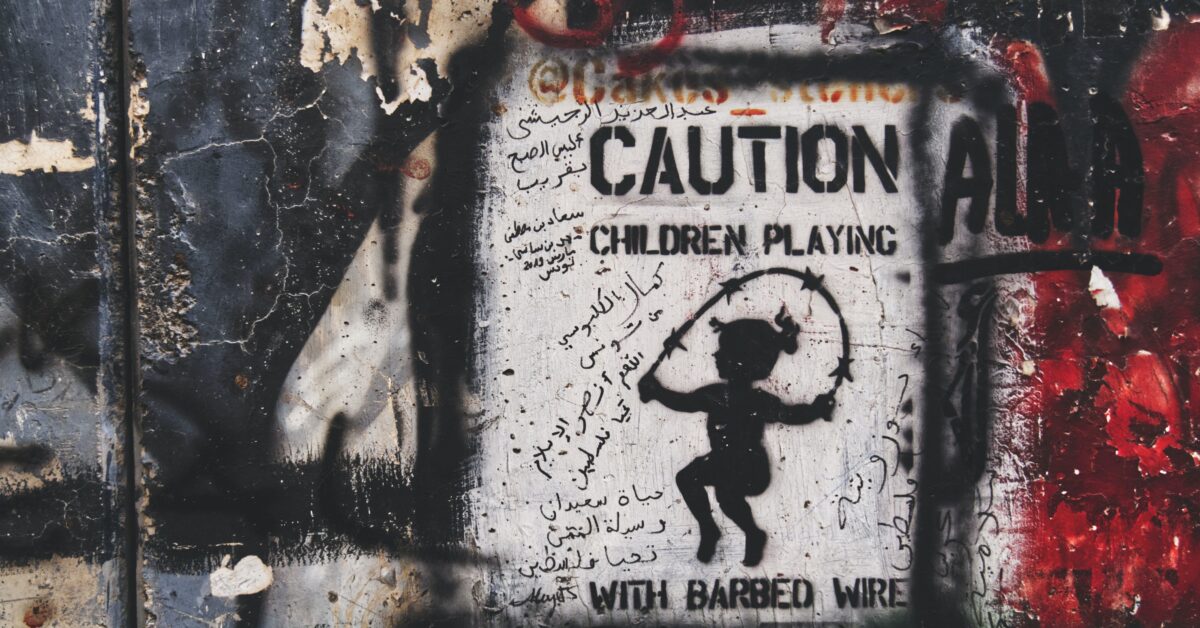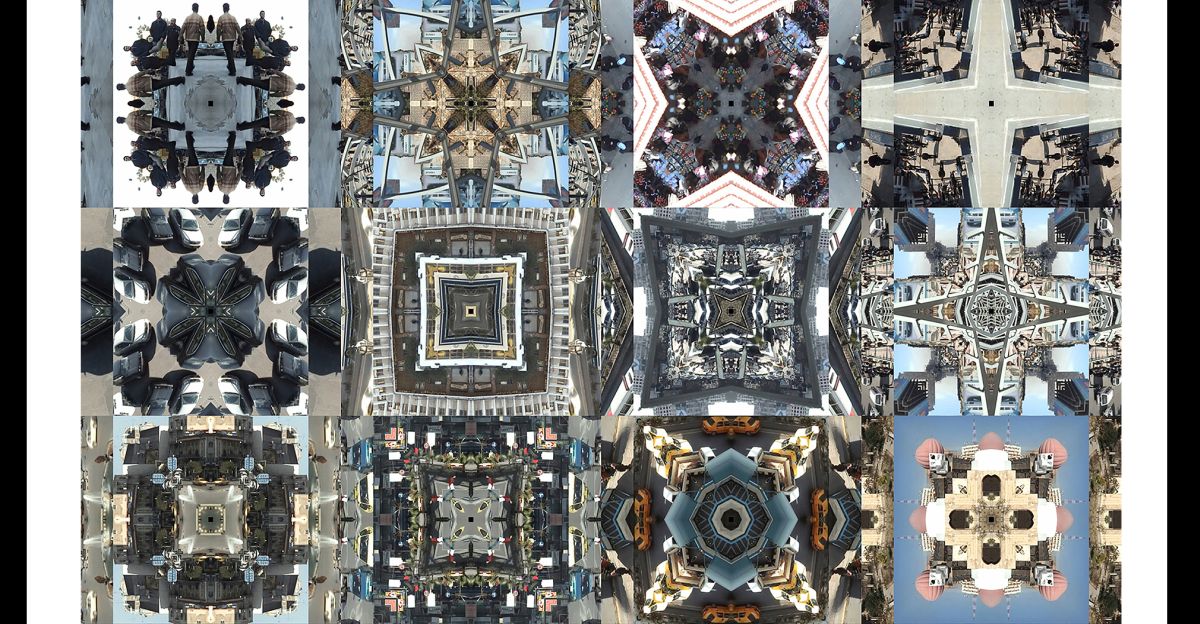‘We are fighting human animals and we are acting accordingly.’
Israeli Defense Defense Minister Yoav Gallant
I
It is true that there are Israelis whose ideas are more nuanced than the media’s. Probably these are a subset of the Israelis who do not attend raves mere miles from the perimeter of an open air prison (the world’s largest). One, who I last saw at the American Colony in Jerusalem, in June, where we drank coffee and smoked cigarettes together, wrote on Tuesday, when quite by chance I was at a funeral, ‘everything [Hamas] is inflicting on us now, we have been inflicting on the Palestinians for years.’
*
I am glad the Guardian has published this line, they would not have if I had written it. Because if I wrote it this would have a kind of irritating idiomatic smack to it, and idioms make what is happening now sound much more flippant than anyone rightly should.
Or because I am part of a class whose deaths don’t matter but whose violence is counted.
*
Or because she is part of a class whose deaths are magnified and whose violence is palatable.
*
Speculation will only make me paranoid, as if I am less and she is more. She is one of the best. This is an unqualified statement because I mean, quite literally, anywhere. Though we both of us live in states that adhere to isonomy and in states who do not admit the chasm between what is formal and what is substantive.
*
(If you are asking which media I suppose the answer is what you’re likely immersed in if you are reading this. Malcolm X says, beware.)
II
Not only are human animals human animals, also they are,
Vipers
Pigs
Terrorists
Not the story.
*
This list is not exhaustive.
III
Vipers as a synecdoche of the class [Reptilia];
as a synectic link to what an Israeli soldier fears but does not know much of; connected to collective nouns like nest;
These, as much as the metaphor, make my skin crawl.
In particular I am thinking about when viper[i] was used to describe ungrieveable men who were stripped to their underwear and
released far from their houses to walk bare foot back (these were the fortunate ones) or
who did not return.
*
In 2002, there was a great deal of confusion: some thousands displaced, some found, some forever missing;
media indignation precluded describing what happened to these disappeared people (about whom it was difficult to distinguish between disappearance and death) as a massacre though at the time it was reported that what was happening smelt like a crime.
*
D9 caterpillars flattened a refugee camp, Jenin; it is well documented including in a poem I once published.
Inhabitants bled to death because there were no ambulances. They were sitting on their beds or lying flat on the floor with their faces pressed into a carpet or neatly swept tiles or letting their soup get cold while they died at the dining room table.
*
These reports are so difficult to read I was diagnosed with Secondary Post Traumatic Stress Disorder and took an absence of leave from my doctoral studies.
*
This was during an event the Israeli’s have filed away as Operation Defensive Shield, conducted in a geography sometimes referred to as Occupied Territory sometimes referred to as apartheid sometimes referred to as illegal—this list is not exhaustive—sometimes referred to as HOME.
IV
In 2014 a teen boy whose name was Mohammed Abu Khdeir was murdered. He was sixteen.
*
The perpetrators left his body in the Jerusalem Forest after they had incinerated it. The autopsy confirmed he was burnt alive. Not idiomatically speaking.
*
There were three perpetrators. Two were unnamed minors. Sometimes the racism that led to this death was described as a ‘fringe’ phenomenon as Isabel Kershner did in the New York Times.
*
The event is also cited as a catalyst for an aerial bombardment in Gaza that left over two thousand dead. That was a mainstream decision be it right or left.
*
After this death, another teen was beaten; he was the cousin of the boy who was murdered.
*
Tariq Abukdeir was beaten so badly by the Israeli police that his face was unrecognisable, perhaps even to his mother, after which a picture of him, in side profile, went viral on Israeli social media paired with a photo that profiled a pig.
I do not know if any text accompanied this viral image.
V
In 1986 a book called Terrorism: How the West Can Win was published. It is an edited book.
*
The editor was one Benjamin Netanyahu.
*
Who also wrote Fighting Terrorism: How democracies can defeat domestic and international terror.
*
What is happening now is not his first rodeo.
*
I have never bought these books but I have read them. As far as my internet search reveals the latter was published in early 2001. Nine months before 9/11.
*
If you were trying to trip me up, let the record show, that I know the Second Intifada had started.
*
Some accounts suggest this is a thing the author himself provoked; others call it a stroll.
*
It doesn’t really matter who started something in the year 2000. It had already for fifty-two years been happening.
*
What most people remember from this time is sometimes referred to under the acronym PSB.[ii]
*
Netanyahu’s behemoth, contrary to popular belief, did not appear “until five months into Israel’s relentless bloodletting”.[iii]
*
Though it may be incendiary to describe this as stoic.
VI
My friend does an interview for the ABC where he draws attention to how we are not the story.
He says I want to know why I’m here today and why I haven’t been here for the past year. His is an excellent question.
A male interviewer who is unknown to me & in this he is like an everyman, perennially objective and fair, perennially white, perennially no idea, tries to put words in his mouth.
It is therefore fortunate my friend can answer his own question. We are only invited when people care he says. He is constrained by the niceness of the ABC studios.
In writing this I am only constrained by my conscience.
When human animals tally up death tolls they are quite rightly told that there is no equivalence, column A, your bodies, and column B, mine, only human animals count bodies like that. When human animals talk about context they are told (quite rightly) there is no justification for columns of dead bodies. Context really doesn’t matter.
When you ask these questions of human animals human animals can only be human animals unless they choose to answer their own questions, like my friend in the ABC interview, and I admire him.
I have never forgotten a quote I once read by an Israeli official who said the story is what is happening to us.
VII
I wrote a paragraph about irony and then I deleted the lines. They were black and bitter. It was a didactic paragraph also.
To paraphrase, on the news Israelis are telling stories that are like the start of my story. A story with a name, and you might know it.
*
That sort of anger would be treading a fine line between human and animal.
*
If you can’t understand these words, then try to feel what makes a body write them.
[i] This was the characterisation of then Prime Minister Ariel Sharon, in Hirsh Goodman and Jonathan Cummings (Eds) The Battle of Jenin: A Cast Study in Israel’s Communications Strategies, (Tel Aviv: The Jaffee Center for Strategic Studies, 2003), p. 23.
[ii] For Palestinian Suicide Bombers, Ghassan Hage, Against Paranoid Nationalism: Searching for Hope in a Shrinking Society, (Annandale: Pluto Press, 2003), p. 120.
[iii] Norman Finkelstein, ‘This Time We Went Too Far’: Truth and Consequences of the Gaza Invasion, (New York: OR Books, 2010), p. 20.






